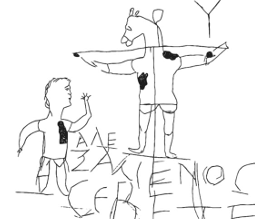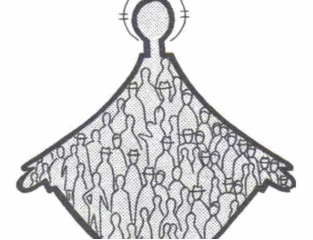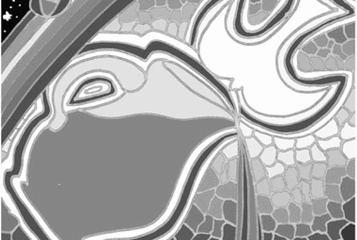On The Job
Eric Bettis
June 21. 2020
The days of the pandemic have left no family or community untouched. We’ve all had to stop and take stock of what’s necessary and important, as many of both the little things and the biggest challenges of everyday life no longer seem quite as dependable, and fewer things can be taken for granted. For many of us, work has changed so much. Some of us are fortunate to have kept to the jobs that we have. Some have recognized that it is wiser to walk away, while others have had that decision, unfortunately, made for them. Regardless of which category you fit in, your relationship with work has almost certainly changed. I’m personally of the school of thought that the Coronavirus pandemic will fundamentally change the nature of work itself.
However, with that being said, I’m blessed and fortunate that, at least at the moment, my days are pretty much the same as before. I split my time between staring at a computer screen and reading dusty books that nobody else finds the least bit interesting. I think, I doodle, I procrastinate, I blow past deadlines almost unapologetically. But somehow, as if through an alchemy transformation, I hope to soon produce a dissertation that will change the world and the way we look at public transit and social equity forever. And by “we”, I mean the six people that will read it – two of whom share my last name, and the other four of whom will read it because they’re paid to.
While the pandemic so far hasn’t changed what I do, it does have some effect on how I do it. Being a scholar and a writer, which in my opinion, are fundamentally one and the same, feels a lot less glamorous now. I’ve traded lounging at Starbucks with a macchiato for scrounging for Starburst on a messy desk. Too much time is spent indulging an aging, ailing laptop that is perpetually in danger of overheating. Perhaps like me, it is eagerly awaiting the next time that it can unplug and move to someplace exciting and different. Which, at this point is basically anywhere but my house. Being what I call a part-time public hermit, I never realized quite how vital the “public” part of that persona was for to continuing to feel connected – to the world, obviously, but also to the things that I teach, and even to the ideas that I spend all of my time pondering and writing about.
COVID has changed everything. Honestly, the fact that I haven’t chucked years of research out the window and decided to instead write about “COVID and the New Urban Crisis” or “The age of COVID and the downfall of urban transit” or, really, anything with “COVID” and “urban” in the title, makes me wonder if I’m not seizing the moment to help real people. So much of academia is exhibition and self-indulgence, and this moment seems like an opportunity to do something that might affect real change. A chance to, as people in my old neighborhood used to say, “not just talk about it, but BE about it.” But I’ve decided to stick with what I know and hope to find a way to contribute down the road, despite the constant pull. So, it’s ironic, but perhaps not surprising, that this months-long forced writing retreat has coincided with profound writer’s block. I thought it was just a coincidence, but now I’m not so sure.
I’ve learned a great deal about myself during the lockdown. For example, I’ve learned that I would make a terrible barista. Seriously. Somehow Starbucks keeps their coffee piping hot forever. But when I do it at home, it’s already warm by the time I get back to my desk. I don’t know….perhaps I just need to press it more Frenchly. I also know that it takes roughly 18 steps to get from my desk to the refrigerator when I’m excited after a really productive writing session, whereas it takes around 22 when I’m dragging and don’t feel motivated. And I’ve learned that a big empty house is a godsend for cranking out work at times, but a curse at others.
I’ve been thinking a lot about the final days before campus officially closed, but after classes were canceled. Those of us who would ordinarily be teaching navigated the halls as if we had no idea what to do next. Either lingering to steal a last chat with a colleague and seeking validation for how freaked out we actually were, or barely wanting to look at each other, as if the virus could be contracted through eye contact. None of this, I’m appalled now to say, was done with social distancing. I wonder and worry if that suspicion and fear will be what greets us, despite our typically warm affection as a department, when we return in the Fall.
The uncertainty that the Fall semester holds is bringing with it a fair amount of anxiety and frustration. Not for me necessarily, but more for all of those professors and administrators charged with making order out of chaos. Andfor those of us whose livelihoods and living situations depend on how well the first group do that very difficult task. Many friends and colleagues who retreated from Ann Arbor in the Spring are waiting to see if it is necessary, practical, or even safe to return in September. Or they’re waiting to see if now is the time to settle in and start a new phase that is very different from what was expected from their admissions letter. Me, I’m easy. I might not even have to teach this semester. And even if so, I’ll just go with it, because when you’re on a team, that’s just what you do.
Despite my determination to finish and finish strong, the events that have taken place since the pandemic have made me rethink a lot of things. Seeing the world changing so rapidly and profoundly makes my small contributions and achievements seem much less important. While I’m proud of my path and the sacrifices I’ve made along the way, all of this time and solitude has helped me clearly see my own cultural blindspots, my ignorance or indifference to struggles that are by no means new, and the amount of times as a scholar that I have studied and pondered injustice rather than standing and fighting it. And it has helped me realize that, just like the body without the spirit, and faith without works, scholarship without living your ideals is dead. Studying the social movements, activism, and the brave people who are risking life and limb isn’t nearly the same as embodying and doing those things myself. And to me, it’s clear that we need more of the latter than the former. Especially now.
Though my current objectives are still clear, the process is still the same, and my goals are still squarely in sight, it’s what waits beyond the graduation stage that is uncertain for people in my position. I’ll admit that I picked my specialization, which is so practical and yet so niche, thinking that I would be in demand, no matter where I went. However, as we’ve all seen, the Coronavirus laughs at our plans and turns everything on its head. The very few people like me face two much less shiny options than before, both of which are inevitably going to be subject to major change. I may be going out into the professional transportation industry at a time when buses and trains and subways are no longer trusted, and the stigma that they often already have will take on new dimensions. Or I may opt to stay in academia, when the whole teaching model is shifting and, at least in the case of higher education, the value itself is coming under greater scrutiny. Some tough decisions will have to be made, and soon. However, regardless of where I end up, I’m going to make it count. My role may be to help usher in a new phase of public trust, which will inevitably have been shaken in public transportation, even after a wave of innovations makes it safe to ride transit again. Or it may be to help young undergrads process the fear and anger from a year or more of COVID and social upheaval, and help show them ways of channeling it into positive change. And when possible, gently suggest becoming urban planners. Lord knows we’re gonna need them.



0 Comments